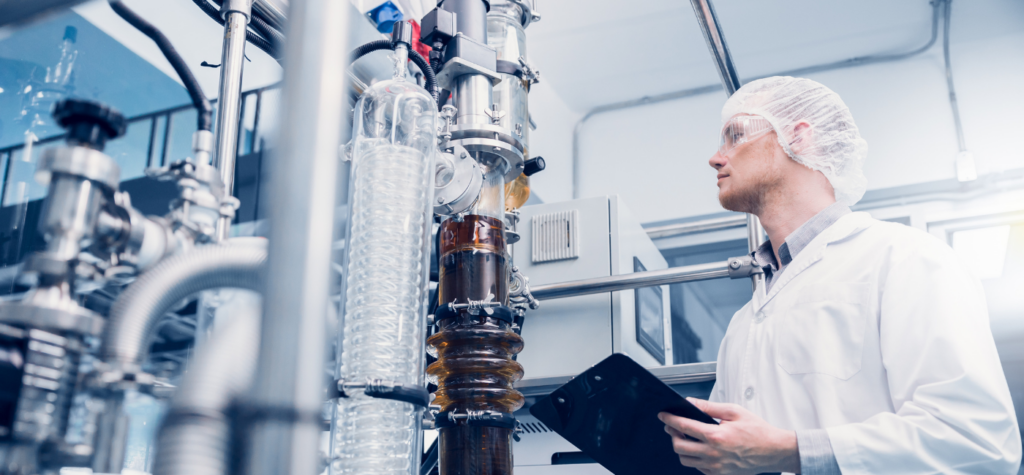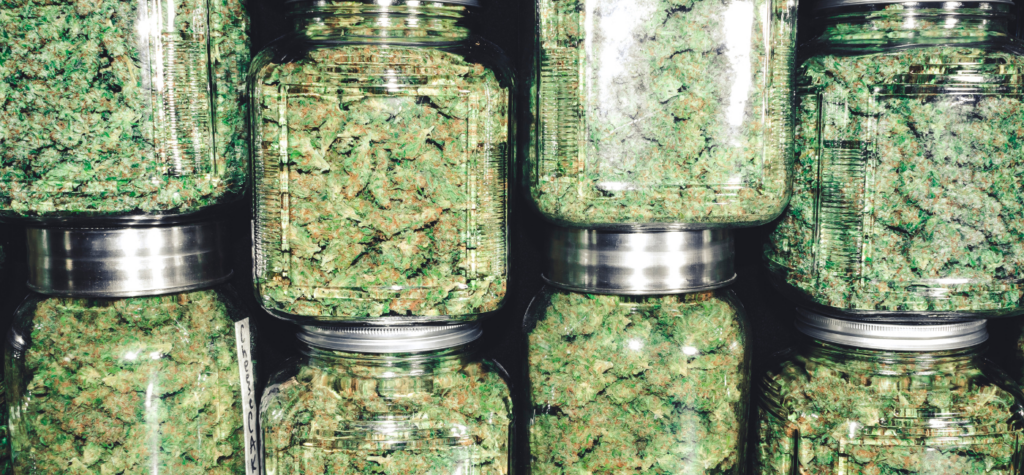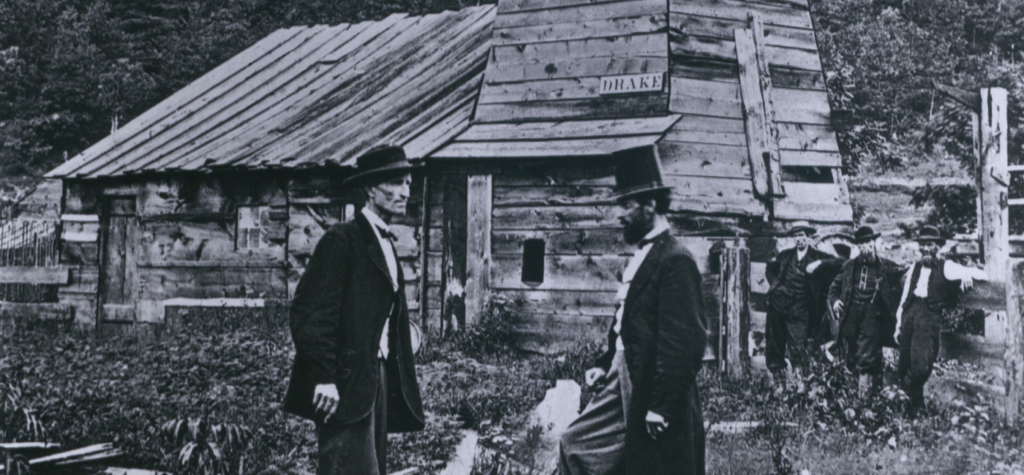Two Competing Visions of Adult Use Cannabis in Pennsylvania
In Part 1 of this series, we delved into the two competing visions for adult use cannabis in Pennsylvania, embodied in House Bill 1080 and Senate Bill 846. We noted that HB 1080 and SB 846 vary widely, with HB 1080 calling for a significantly higher level of taxation of sales than SB 846, while SB 846 would cost cannabis businesses significantly more in application and annual fees. SB 846 also offers much more in terms of a social equity program.
We also observed that HB 1080 would allow for cultivation by private companies but would funnel all retail sales through the state’s Fine Wine & Good Spirits stores. SB 846 would leave all of adult use cannabis in the hands of private industry, with cultivation and retail sales administered by the state’s existing medical cannabis system, which includes 178 dispensaries.

To fully understand the current status of adult use cannabis in the Keystone State, we need to study the players behind the scenes, their aspirations and concerns.
Questions Abound on HB 1080’s Impact on the Future of Cannabis in Pennsylvania
Supporters of HB 1080 are quick to point out that adult use sales will be conducted and easily monitored by state-operated stores, thus avoiding sales by criminal actors.
However, such close control comes at a price. The Pennsylvania Liquor Control Board will be able to fix the wholesale and retail prices of cannabis and cannabis products. So, the cultivators, testers, and manufacturers who will be licensed to provide adult use cannabis to the state’s retail stores will have the state deciding how profitable they can be.

Current medical dispensaries wonder whether the business landscape under HB 1080 would allow them to survive. Medical patients would still only be affected by the current 5% wholesale cannabis tax (as opposed to a 10% wholesale tax for adult use under HB 1080) and wouldn’t be subject to the 19% retail tax. But even with the significant tax savings, would medical dispensaries be cut out of Pennsylvania cannabis’s growth entirely and even lose a significant portion of their customer base on top of this?
If California is any example of this, the state went from an estimated medical cannabis population in 2010 (pre-adult use) of 750,000 – 1,125,000 patients to the current status where medical sales make up only 2%-5% of cannabis sold in the state. And this despite the fact that medical patients in that state pay no sales tax and a reduced city tax in cities like Los Angeles that tax cannabis.
The outlook for medical dispensaries looks bleak under HB 1080.

Both Bills Have Their Advocates – And Detractors
Both bills are backed by different stakeholders. HB 1080 has the support of the United Food and Commercial Workers International union, which represents state liquor store clerks as well as some medical cannabis workers. SB 846 is supported by many multistate cannabis companies including Trulieve and Cresco Labs, among others.
Further complicating potential approval of adult use cannabis in Pennsylvania is the conflict between the large multi-state operators and those who believe opportunities must be given to small businesses and individuals harmed by the war on cannabis by providing for separate adult use licensing. Allowing adult use cannabis products to be sold by already-established medical cannabis companies would give multi-state operators an advantage says former Massachusetts cannabis regulator Shaleen Title. Though it would provide access to “legal products more quickly,” it “reduces competition and hurts consumers in the long term” by increasing prices and reducing the number of distributors, she comments.

Decriminalization – Layers of Complication to Legal Cannabis in Pennsylvania
Even a topic as basic as decriminalization of possession has layers of complication. Currently, possession of less than 30 grams of cannabis is a misdemeanor punishable by up to 30 days in jail and a fine of $500. On January 12, 2024, Senator Street co-sponsored Senate Bill 1028 to decriminalize possession of small amounts of cannabis and make it a summary offense with a fine of $25.
While many in the cannabis community are calling for decriminalization and even Scott Bohn, executive director of the state police chiefs association and member of the state’s Medical Marijuana Advisory Board, recently stated, “We could certainly live with decriminalization,” other cannabis leaders are pushing back.

In a presentation before the House Health committee, cannabis industry executives told lawmakers they want the state to keep cannabis possession illegal until the recreational industry has been established. They also want the state to crack down on sales of hemp-derived THC products, some of which are as psychoactive as adult use products but which are currently outside the scope of state and federal laws. Both actions are seen as giving a nascent adult use industry a chance to gain a foothold against unlicensed competition.
Pushing back against too-soon legalization was also echoed by SB 846 co-sponsor Laughlin, who is worried decriminalization would create a black market.
Complex Issues Stymy Legalization of Adult Use Cannabis in Pennsylvania
The struggle to approve adult use cannabis in Pennsylvania is a complex issue. And with Pennsylvania one of the seven “battleground states” in the upcoming presidential election, partisan conflict and division is not likely to lessen, making the passage of adult use legislation, which will require bi-partisan support, all the more difficult.
Lessons From Pennsylvania’s History
Perhaps one can do worse than look to Edwin Drake’s determination to wrest oil from the sandy soil of Titusville to predict the outcome of today’s battle for adult use cannabis. In our previous article, we noted that the father of Pennsylvania oil initially dug trenches in a manner identical to all prior prospectors for black gold, but he came up empty-handed.
After realizing he needed to look deeper underground for oil, Drake spent all Seneca Oil’s money retooling a steam engine to operate a specialized drill bit. With the aid of local Titusville merchants who provided him and his family personal credit so he could survive, Drake began to drill in the summer of 1859. Water filled his hole, but he solved that problem too, and on August 28, 1859, at a depth of 70 feet and two years after he began his search, he finally struck oil. Drake’s Pennsylvania well was the first oil well the world had ever seen, and it kicked off Pennsylvania’s oil boom.

The original 1859 Drake oil well in Titusville, Pennsylvania, with Edwin Drake (in top hat) and Peter Wilson in foreground, and James Smith, William Smith, Jr., and Elbridge Lock in background. Photographed by John A. Mather; courtesy of The Everett Collection.
Persistence and Innovation Needed for Recreational Cannabis
Like Edwin Drake, Pennsylvania’s cannabis industry is going to have to be persistent to see adult use cannabis legalized. One issue that neither HB 1080 or SB 846 resolves is excessive taxation and its effect on the legal cannabis industry. Whether in the form of steep cannabis sales or excise taxes, as with HB 1080, or in the form of hefty licensing and annual fees, as with SB 846, exorbitant taxation will only make the legal industry less competitive compared with illicit operators, pariahs which have infiltrated all other states with adult use cannabis. Such taxation could strangle Pennsylvania’s nascent adult use industry before it even has a chance to gain a foothold, in effect killing the “taxation goose” that lays the golden eggs.

Many Pennsylvanians see adult use cannabis as inevitable. Cannabis entrepreneur, Claudia Post, named by Philadelphia Magazine as one of the most influential people in Pennsylvania cannabis, sums up their perspective. “People are buying their recreational cannabis across state lines. The money is seeping out of our state. At the same time, there are budget shortfalls in transportation, infrastructure, schools. Where is the money going to come from to meet those shortfalls? It’s going to come from legalized recreational cannabis.”
Pennsylvania may have to devise new legislative and political methods to get it done. But in the end, their persistence is sure to be rewarded, and the “green gold” will start to flow, providing cannabis to all Pennsylvania’s citizens and abundant taxes for the public good.
